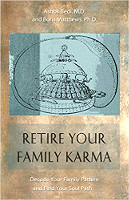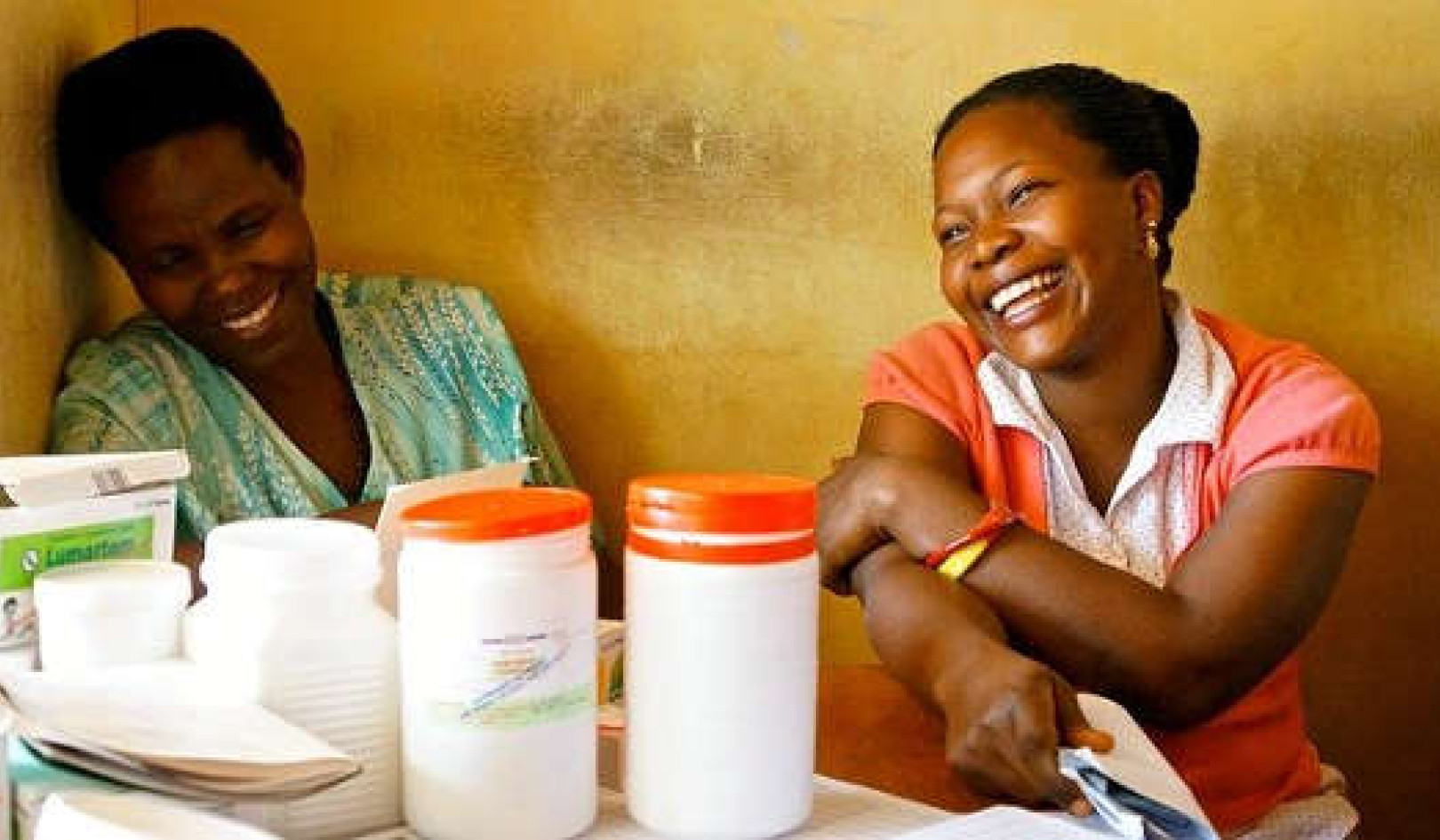
Image by Jill Wellington
Psychoanalyst Heinz Kohut identified three kinds of relationship, or "self-object," experience. These are experiences of relationship with other people (objects of our love) that affirm our sense of self in one way or another.
The first of these relationship experiences, in which another affirms the validity of our strivings, secures our soul. The second relationship experience, in which somebody appears to be everything we would like to become, challenges our soul. The third, in which we experience another person as "just like us," befriends our soul.
Each of these relationship experiences contributes to our ability to discern and actualize our authentic, innate talents and nature, the "blueprint" of who and what we are: our soul.
Soul
It's important to clarify what we mean by "soul." First, we do not use the word "soul" in the context of any particular religion. Rather, we think of soul as deriving from the Transcendent Source that Itself is the ground from which the various spiritual and religious traditions arise. In fact, our position is that all individual things that manifest in the material world ultimately proceed from the Transcendent Source, the Ground of Being.
In our view, soul is the prefiguration, or template, for what takes physical form, as well as what we experience at our human level when our attitudes, emotions, and actions are in accord with that prefiguration. When we're living lives that actualize that template, we feel that we're "in the groove," that we're "getting it right." Hence "soulful" experiences are those in which we consciously are living in accordance with our unique, in-born nature.
All individual things that come into being in the material world are prefigured in soul, hence the importance of relationships that secure, challenge, and befriend the soul.
Relationships that Secure the Soul
A growing infant feels a sense of its value and worth when the parents joyfully accept and celebrate his or her mini-achievements. This is the "mirroring" experience that reflects a child's developing potential. Later in life, the child looks up to parents as strong, powerful, and affirming persons who provide a feeling of safety, security, and freedom to expand his or her frontiers and further explore the world.
Almost all of us get some of this early in life; if we didn't, we would probably not survive infancy, or survive only with serious deficits. To the extent that we do not have loving "mirrors" who accurately and appreciatively reflect who and what we are, we get a distorted view of ourselves.
When, as adults, we recognize that we are stuck, that we repeatedly have unfulfilling or painful experiences, we need someone -- a friend, a partner, a therapist -- who can accurately mirror both the current reality of what we are and our undeveloped potential. In the course of the mirroring relationship, we change internally as an "inner good parent" develops.
As our internal psychological structure changes, we feel differently about ourselves, more positive, less damningly self-critical. We become able to recognize our strengths and good qualities, and trust ourselves in new ways that do not depend on immediate feedback from other people. We become freer.
Journal Exercise
Open your journal to two facing blank pages. At the top of the left-hand page write "Relationships that Secure My Soul." List all the people over the course of your life who you believe have "seen the real you," who believed in you and affirmed you.
At the top of the right-hand page, write "Relationships that Harm my Soul." Write the names of all the people who have put you down; who didn't appreciate you; who couldn't see the real you. Then on a separate page for each person, reminisce about that person: how they treated you; how you felt in their presence; how their relationship with you affected you for better or worse. What was special -- especially beneficial or detrimental -- about them that was and still is so important to you?
Write at the top of a third page: "People in My Life Who Mirror My Reality." On separate pages for each of these persons, reflect on the ways each of them sees and affirms your potential; how each of them cares enough about you to lovingly confront you when you fall short of being your best self.
Relationships that Challenge the Soul
"When I grow up, I want to be like ..." With those words, we identify a goal, an ideal. We all need to be able to idealize something or someone. When we see our ideal realized, it gives us courage to try to do likewise. It proves to us that our ideal is possible in the world in which we live.
Of course, our ideals can change over time, and that is natural. Who would want to be a teenager worshiping a popular singer or entertainer or movie star all her or his life? Whether we have an actual or a fantasy relationship with that idealized person, we feel the urge to become like her or him.
The idealizing relationship can both challenge and motivate us. Whereas the mirroring relationship reflects our current reality and the potential we can further develop, the idealizing relationship shows us the possibility of realizing something that inspires us.
Journal Exercise
Open your journal to facing blank pages. At the top of the left-hand page, write "Relationships that Challenge My Soul." Write down the names of all the women and men you've admired and wanted to be like. They may be friends, relatives, public figures, people from history.
Take a separate page in your journal for each of them, and write about the qualities you saw and admired in them that you want to cultivate in yourself. What can you do now to come closer to being like them? What hinders you from becoming more like them?
Relationships that Befriend the Soul
In relationships that befriend the soul, we feel that we and the other person are essentially the same, that is, that we are "twins." (Kohut called these "twinship" relationships.) We trust what our "twin" reflects to us; the distance we experience when we idealize another person vanishes.
Both idealizing and twinship relationships energize us, but they feel different. An idealizing relationship inspires us to strive toward a goal; a twinship relationship vitalizes us as we actually join with another with whom we share an affinity. These are the conditions in which we need relationships that facilitate healing.
Journal Exercise
In your journal, make a list of all the people who have felt or feel like your "twin": individuals who are "just like me." (Of course, we realize that they do differ from us in some ways, but the feeling of twinship overrides our knowledge of our differences.)
On a separate page for each person, describe the qualities you have in common. What has resulted from your twinship? How have you grown? What have you accomplished because of your twinship? When we are fortunate enough to have optimal self-object experiences -- relationships that secure, challenge, and befriend our soul, either as infants, children, or in adult life -- we increasingly trust our own emerging potential. Then we develop a vital, creative, and joyful sense of self. The acorn is on the way to becoming the oak tree in such fertile psychological soil.
If, on the other hand, we lack these experiences, our psyche sustains deep wounds that may take several generations to heal. Some of us are fortunate to get a second chance at such healing self-object experiences in a significant relationship: with a partner, friend, mentor, or therapist.
Family Complexes and Myths
By assessing the stories of our grandparents we get a deeper understanding of our self-object experiences, of the family complexes and myths into which we have been born, and what might be our dharmic task, the calling of our soul.
An additional framework that may facilitate understanding our family karma is our parents' choice of godparents for us, and our choice of mentors. We hypothesize that our parents may unconsciously choose godparents that complement but more often compensate for the missing piece of psyche from them and from our grandparents. In early adulthood, we may then choose mentors who help us overcome personal or family karmic obstacles and fill in more gaps in our development. Godparents and mentors gives us a significant clue as to what part of our grandparental karma we need to retire and what was missing from our self-object experiences in our family.
In gaining such clues, we may not only retire the family karma, but often stumble into our dharma, our soul's calling, our life's task. If this is not the outcome, then at the very least, retiring the family karma of our ancestors clears the way for attending to our dharma, our individuation, our soul work in this lifetime.
Reprinted with permission of the publisher,
Nicholas-Hays Inc. http://www.nicolashays.com
©2003. All Rights Reserved.
Article Source
Retire Your Family Karma: Decode Your Family Pattern and Find Your Soul Path
by Ashok Bedi, M.D. & Boris Matthews, Ph.D.
 We reap what we sow, but we also reap what others before us have sown. If we do this unconsciously, we find ourselves victims of unfortunate circumstances, but if we are conscious of what we have taken on from our family legacy, we can turn it around.
We reap what we sow, but we also reap what others before us have sown. If we do this unconsciously, we find ourselves victims of unfortunate circumstances, but if we are conscious of what we have taken on from our family legacy, we can turn it around.
Doctors Bedi and Matthews have worked with people who have carried the burden of their families' best achievements, worst failures, and unrealized dreams. With their experience, we learn to recognize our karmic inheritance and settle our family's karmic accounts so we can redirect our energies in accord with our own true path and passion, our soul's calling.
Info/Order this book. Also available as a Kindle edition.
About the Authors
ASHOK BEDI, M.D. is a certified Jungian psychoanalyst and a distinguished Fellow of the American Psychiatric Association. He is a clinical professor of psychiatry in Milwaukee, and on the faculty at the C. G. Jung Institute of Chicago. He has practiced psychiatry and psychotherapy in Milwaukee for over 25 years and given workshops and lectures in the U.S., Great Britain, and India. Visit his website at www.pathtothesoul.com.
BORIS MATTHEWS, PH.D. has practiced as a clinical social worker and Jungian psychoanalyst in Milwaukee for over 20 years. He served as chairperson for the Analyst Training Program at the C. G. Jung Institute of Chicago and teaches and facilitates therapeutic dream groups. He has translated several important books, including Erich Neumann's The Fear of the Feminine and Hans Dieckman's Complexes: Diagnosis and Therapy in Analytical Psychology. Visit his website at www.borismatthews.com.




























